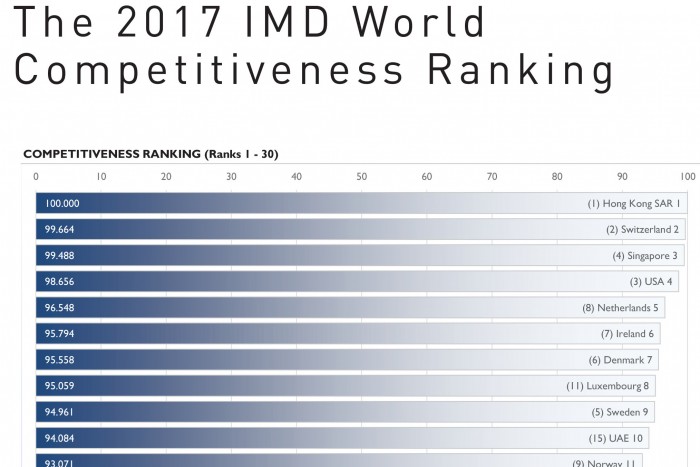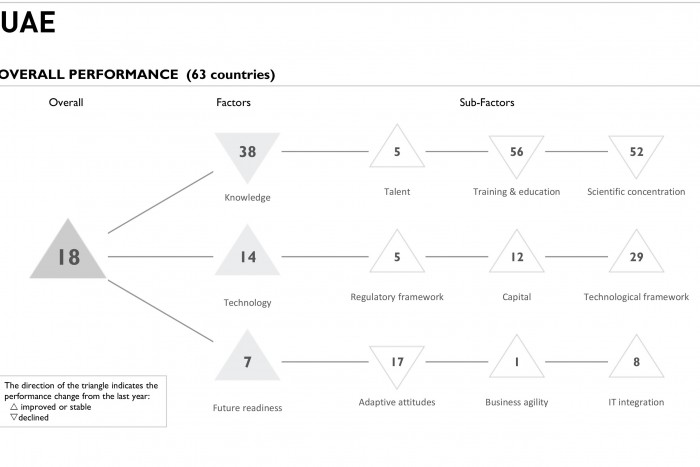
The UAE has been ranked 14th globally for technology competitiveness in the IMD World Competitiveness Centre’s annual report, as well as 18th for digital competitiveness.
The country also ranked an impressive 10th for World Competitiveness, up from 15th in 2016.
Saudi Arabia made its first appearance in the select group of 63 nations, ranking 36th for World Competitiveness and 41st for technology competitiveness. Qatar was ranked 17th overall and 31st for technology.
For the first time this year, Swiss-based IMD (International Institute for Management Development) published a report ranking countries’ digital competitiveness. The new ranking introduces several new criteria to measure countries’ abilities to adopt and explore digital technologies leading to transformation in government practices, business models and society in general.
The 50 indicators which the research is based on are grouped in nine sub-factors that, in turn, are classified in three factors – knowledge, technology and future readiness, for which the UAE ranked 38th, 14th and 7th respectively.
Singapore topped the digital rankings, followed by Sweden, the USA, Finland and Denmark.

“There is no doubt that supportive and inclusive government institutions help technological innovation,” Professor Arturo Bris, director of the IMD World Competitiveness Centre, said. “Singapore and Sweden have developed regulation that takes advantage of the talent they have by adopting, for instance, regulation that facilitates the inflow of overseas talent which complements the locally available pool. The US invests more in developing its scientific concentration and generating ideas but the country has a history of government support for technological innovation. This shows that in digitally competitive countries, the government must facilitate the adoption of new technologies.”
“Of paramount importance in the digital ranking are issues related to how adaptive and agile economies are when faced with technological change,” Bris added.
The IMD World Competitiveness Centre, a research group at IMD business school, has published the World Competitiveness rankings every year since 1989. It compiles them using 261 indicators, about two thirds of which come from ‘hard’ data such as national employment and trade statistics, and a third from more than 6,250 responses to surveys that measure the business perception of issues such as corruption, environmental concerns and quality of life.
Hong Kong consolidated its dominance of the annual rankings, taking the top spot for the second year. Switzerland and Singapore came in second and third, with the USA ranking fourth, its lowest position in five years and down from third last year. The Netherlands completed the top five, jumping up from eighth last year.
Bris said the indicators that stood out among the most improved countries are related to government and business efficiency as well as productivity.
“These countries have maintained a business-friendly environment that encourages openness and productivity,” he said. “If you look at China, its improvement of seven places to 18th can be traced to its dedication to international trade. This continues to drive the economy and the improvement in government and business efficiency.”






